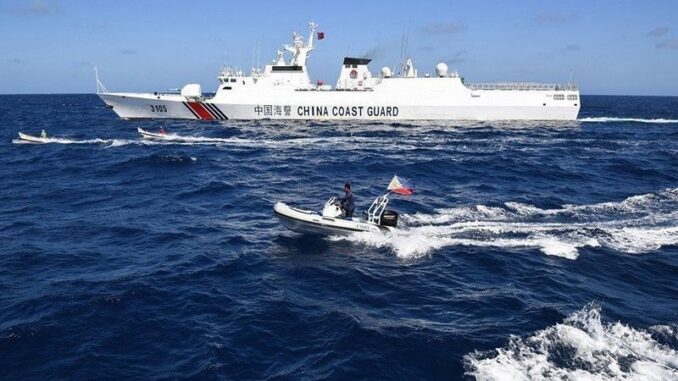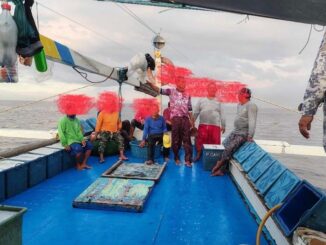
MANILA, Philippines — The United States is employing a two-pronged approach to counter China’s aggression in the South China Sea: upholding order and fostering partnerships, according to a senior coast guard official.
During a briefing with reporters on Tuesday, Rear Admiral Andrew Sugimoto, deputy commander of the U.S. Coast Guard Pacific Area, explained that this strategy involves demonstrating compliance with international law and conducting joint exercises.
“We can provide training in legal capacity, maritime domain awareness, or even conduct joint exercises at sea, so that they can see we are united in our commitment to upholding the rules-based order that’s so important,” Sugimoto said, as quoted in a transcript released by the Department of State.
Should China continue to defy international norms, it would face global condemnation and see its economic goodwill destroyed, Sugimoto noted. The U.S. hopes this pressure would prompt a change in China’s behavior.
“China wants to have a vibrant economy, and if nations condemn their actions… perhaps they will change the way they do business,” he said.
Sugimoto also criticized China’s recent claim that ramming Philippine vessels in the West Philippine Sea—a maritime region the Philippines considers its own—was “professional, restrained, and appropriate.” He dismissed this as “unsafe and unprofessional conduct” that exemplifies China’s bullying behavior in the region.
“It’s a little astounding to say that I’m going to break the law in order to uphold the law. It just doesn’t make sense,” he added.
What went before. China, through its Coast Guard and Maritime Militia, continues to encroach on the West Philippine Sea, harassing Filipino fishermen and vessels from the Philippine Coast Guard and the Bureau of Fisheries and Aquatic Resources (BFAR).
In August alone, six incidents of harassment by China were recorded. Three of these involved BFAR surveillance planes in aerial encounters, while the other three incidents occurred in the waters of the West Philippine Sea.
These maritime incidents included the blocking of resupply missions and the ramming of vessels. Notably, on August 25, multiple Chinese vessels fired water cannons simultaneously at a BFAR vessel.





Be the first to comment